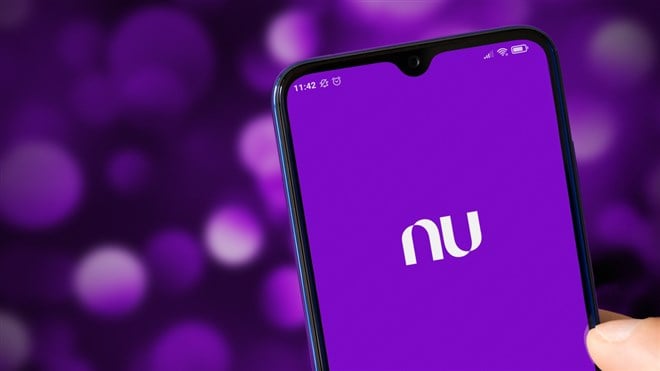
As a pioneer of the value investing methodology, Warren Buffett is most famous for investing in blue chip brands found in millions of homes and businesses throughout the United States.
Recently though, his investment company Berkshire Hathaway (NYSE: BRK.B) has made some adventurous entries into emerging markets such as Africa and Latin America. Emerging markets account for around 80% of the world's global economic growth each year and can provide investors with diversified, risk-adjusted opportunities absent in the developed world.
Nu Holdings (NYSE: NU) is one of Berkshire Hathaway's top ten equity holdings by the number of shares and is currently its largest equity holding outside of the United States.
Buffett owns 107.1 million shares of Nu Holdings, making it his eighth-largest investment by the number of shares owned. That puts it behind American Express Company (NYSE: AXP) at 151.6 million shares but just ahead of Hp Inc. (NYSE: HPQ) at 104.5 million shares.
To make things more interesting, Buffett or his team bought shares in Nu Holdings only months after its initial public offering (IPO) hit the market in December 2021. That was a big risk, as the share is now down over 50 percent at the time of writing. What's riskier still is how different Nu Holdings is from Buffett's usual investments, suggesting he spots a unique opportunity to dip into more speculative waters.
Nu Holdings, the company
Nu Holding's flagship brand is Nubank which offers digital banking services primarily to customers of South America's largest country, Brazil.
As an online-only alternative to traditional banking services, Nubank has no physical branches and therefore spends the minimum on customer-facing resources. These cost savings are then passed on to its members, providing much-needed relief from the extortionately high fees charged by banks in Brazil and neighboring countries.
In an article published by Extra Global, Brazilians were said to spend around $6.66 per month on banking fees per month or about $79.89 each year. Considering this figure, over half of Brazil's population makes less than $250 per month.
The company's main opportunity is banking the unbanked people of South America. Due to poverty, crime, and political instability, obtaining these services is beyond the reach of almost half the continent's population of 640 million, making it the leading unbanked region in the world, second only to Africa.
Nubank eases these pain points through lower fees and more equitable services for the region's poorest. So far, it has enjoyed rapid adoption on its home turf in Brazil and is now eying up future opportunities throughout the continent.
Performance
Nu Holdings has grown its top-line revenue quarter to quarter since going public and consistently surprising analysts with massive jumps in earnings.
Last September, the company's revenue surged to 471.5 million, up 86.73% year over year. Net income stood at 7.83 million, climbing 122.9% year over year.
The consensus on Wall Street is also positive about the stock. It currently has a 110.3% upside at the time of writing and projected growth in its earnings per share (EPS) from ($0.01) to $0.10.
Future potential
In terms of user growth, things are looking upward. The platform grew from 48 million users in 2021 to 65 million in 2022. The total addressable market for the company's platform should also be considered, as around half of the continent is unbanked and could use its services.
Nubank's innovative approach to banking has enabled it to become the leading financial services company in South America. The company is helping to drive economic growth, increase financial inclusion, and improve the quality of life for customers. With its focus on technology and user-friendly design,
Nubank is transforming the banking industry in South America and making it easier for people to access the financial services they need.
Nubanking is also helping to reduce financial exclusion in South America. By providing digital banking services, Nubanking is helping to reduce the number of people excluded from traditional banking services due to their lack of access to physical banking branches. This helps to ensure that everyone in South America has access to the same financial services regardless of their socio-economic status.




